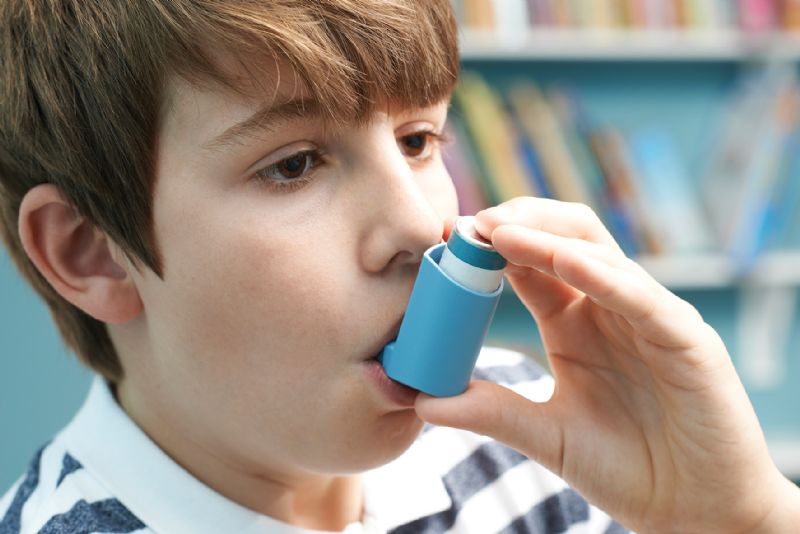- Home
- News, Articles & Reviews
We are hiring! Please click here to join our growing magazine delivery team in Gloucestershire!

An overview of asthma
All Areas > Health & Beauty > Medical Health
Author: Kirsty Lilley, Posted: Tuesday, 22nd October 2024, 09:00
Asthma is a common disease of the airways, which can affect all age groups. It is a chronic condition caused by inflammation and muscle tightening around the airways, making it harder to breathe. According to the World Health Organisation it is the most common chronic disease amongst children.
Narrowing of the small airways within the lungs can produce symptoms such as wheezing, coughing, shortness of breath and chest tightening. Symptoms can range from mild to severe and can come and go over time and exposure to triggers within the environment.
Asthma is commonly under-diagnosed and under-treated. This can cause a whole host of associated difficulties including poor sleep, poor concentration levels and tiredness during the day, which has a significant impact on quality of life and the ability to work. Prompt diagnosis and treatment can mean that the disease is managed well and returns a quality of life to the individual.
It is important to visit your GP if you think that either yourself or your child has asthma, as the symptoms can be a sign of other difficulties. Correct and timely diagnosis is important.
Symptoms
These can vary between individuals, but commonly consist of:
• A persistent cough, especially at night.
• Wheezing when exhaling and sometimes when inhaling.
• Shortness of breath and difficulty breathing, sometimes even when at rest.
• Chest tightening making it difficult to breathe deeply and fully.
Some people react to certain triggers in the environment, which might include dust, grass and tree pollen, perfume, traffic fumes, animal fur and feathers. It is important to try to avoid these triggers, if known to you, as much as possible. As asthma is a lifelong condition it is important to learn how to care for yourself at home to reduce attacks where possible.
Treatment
Asthma is usually treated by an inhaler, which is a small device that allows a person to breathe in medication. There are reliever inhalers, which manage the symptoms of asthma as they are occurring, and preventative inhalers, which are aimed at preventing an attack by daily or regular use. Some people may also be prescribed tablets depending on their condition.
Causes
It is often difficult to isolate a single cause to the development of asthma, but some factors have been linked to an increase in its likelihood and include:
• Other family members with asthma.
• People with other allergic conditions are more susceptible.
• Living in an urban area and the resultant exposure to industrial/traffic fumes.
• Events in early life including prematurity, low birth rate, early viral infections.
• Obese adults and children are at greater risk.
Self-care
People with asthma and their families need education around how to manage their condition, including treatment options, triggers to avoid, and how to manage symptoms at home. This also includes what to do in the event of a worsening attack that may need emergency intervention. Healthcare providers can help by developing an asthma plan, which helps with the above.Copyright © 2026 The Local Answer Limited.
Unauthorized use and/or duplication of this material without express and written permission from this site's author and/or owner is strictly prohibited. Excerpts and links may be used, provided that full and clear credit is given to The Local Answer Limited and thelocalanswer.co.uk with appropriate and specific direction to the original content.More articles you may be interested in...


© 2026 The Local Answer Limited - Registered in England and Wales - Company No. 06929408
Unit H, Churchill Industrial Estate, Churchill Road, Leckhampton, Cheltenham, GL53 7EG - VAT Registration No. 975613000You are leaving the TLA website...
You are now leaving the TLA website and are going to a website that is not operated by us. The Local Answer are not responsible for the content or availability of linked sites, and cannot accept liability if the linked site has been compromised and contains unsuitable images or other content. If you wish to proceed, please click the "Continue" button below:




